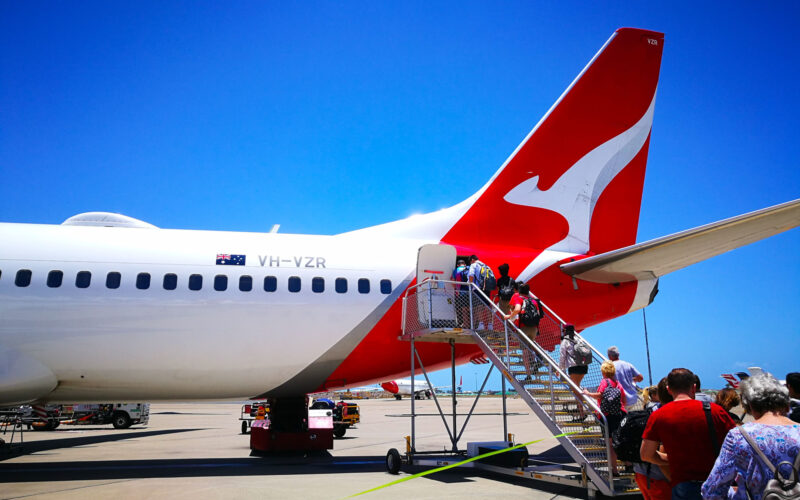Qantas has rejected the Australian government’s mandatory passenger compensation proposal, claiming that such a scheme would be a “backwards step” that would not solve the core issues of cancellations and delays.
The Australian flag carrier has released its response submission to the federal government’s aviation green paper.
The aviation green paper was created to help the Australian government to compose a policy direction for the aviation sector out to 2050.
Since its release in September 2023, feedback on the aviation green paper has been sought from the industry on aviation matters, including: airlines, airports and passengers, emerging aviation technologies and the industry workforce of the future.
On December 14, 2023, Qantas released its response to the aviation green paper, which included detailed recommendations and comments on industry issues.
No to mandatory compensation
Aside from believing that compensating passengers will “do nothing” to improve airline cancellation and delays, Qantas also suggests that this will likely increase confusion and complaints and materially increase costs.
The airline believes that this will ultimately lead to higher fares and make marginal routes less sustainable.
Qantas has also cited the International Air Transport Association’s (IATA) June 2023 notes, in which data shows that disruptions have increased since EU261 flight compensation policy was introduced.
“This has led to a commensurate increase in consumer complaints, rather than a decrease, as has been suggested by some advocates for the EU scheme to be used as a template in Australia,” the airline said in its response.
Aircraft Noise
Qantas suggested that a “balanced approach” is required on the issue of aircraft noise, which will give consideration to the higher emissions and environmental impact resulting from inefficient flight paths and procedures.
The airline argued that the most effective way to reduce aircraft noise is by operating modern aircraft, which can have a 50% reduction in noise footprint. It added that the government should incentivise industry to invest in quieter and cleaner aircraft.
Sustainability
The Qantas Group stated that it is investing to help develop a domestic sustainable aviation fuel industry, which ultimately has the potential to create tens of thousands of jobs and investment in Australia.
The airline outlined its key policy recommendations in sustainability, which are:
- Setting sustainable aviation fuel mandates for the domestic jet fuel supply, including 5 % by 2030 rising to 28%by 2040.
- Providing capital support to kickstart new production facilities.
- Implementing a production incentive linked to carbon reduction from fuel to allow domestic producers to compete with overseas markets.
- Providing tax incentives and credits to SAF producers, similar to what occurs in other government programs.
Andrew McGinnes, Chief Corporate Affairs Officer for the Qantas Group said in a press statement: “Australian aviation faces some big questions over the next few decades and long-term thinking is needed to answer them. We welcome the Government’s willingness to do this work and seek a wide range of views in the process.”
“Our submission makes a number of recommendations about reform, including the need for a local sustainable aviation fuel industry, guardrails for airport price setting and more efficient regulation,” Micginnes added, concluding: “Our submission makes a number of recommendations about reform, including the need for a local sustainable aviation fuel industry, guardrails for airport price setting and more efficient regulation.”

